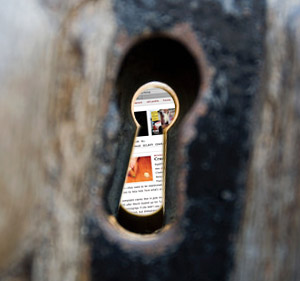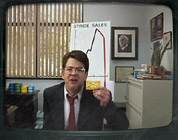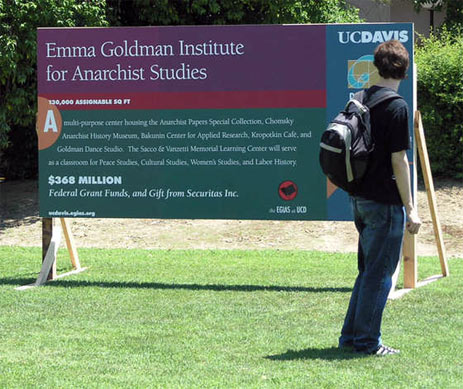Adam
We looked up the weekly circular for Naperville, IL and sure enough. There it is. No mention of a misprint. We think Circuit City should honor this offer. There’s really no reason to believe it was a misprint.
Thanks for visiting Consumerist.com. As of October 2017, Consumerist is no longer producing new content, but feel free to browse through our archives. Here you can find 12 years worth of articles on everything from how to avoid dodgy scams to writing an effective complaint letter. Check out some of our greatest hits below, explore the categories listed on the left-hand side of the page, or head to CR.org for ratings, reviews, and consumer news.

Adam
We looked up the weekly circular for Naperville, IL and sure enough. There it is. No mention of a misprint. We think Circuit City should honor this offer. There’s really no reason to believe it was a misprint.
../../../..//2007/11/05/know-that-story-about-the/
Know that story about the guy who supposedly invented subliminal advertising, where they would flash secret messages faster than the eye could perceive and get you to buy more Coke and such? Besides being shown to be completely ineffective, the guy who “discovered” it actually made the whole thing up as a gimmick to get more business for his marketing research company. [WSJ] (subscription-free link)

“We’re looking at everything people put into their profiles and what their friends are into,” said Arnie Gullov-Singh, a Fox Interactive vice president.

A study released this week (just in time for the FTC’s online advertising workshop) shows that a huge percentage of Americans don’t grasp just how intensively their online habits are tracked, analyzed, and used to serve ads back to them. Almost 55% of respondents “falsely assumed that a company’s privacy polices prohibited it from sharing their addresses and purchases with affiliated companies,” and almost 40% “falsely believed that a company’s privacy policy prohibits it from using information to analyze an individuals’ activities online.”

I was listening to one of personal productivity maven’ David Allen’s teleseminars and he said something incisive about the impulse to buy fancy stuff. People think they want to buy a sports car, Allen said, but maybe what they really want is the sense of freedom they think a sports car will give them. Advertisers understand this and use it to get you to buy stuff. It’s the principle of “selling the sizzle, not the steak.”

Consumer Reports deconstructs the ad for “restless leg syndrome” drug Requip in this amusing video. Restless Leg Syndrome, while a real condition, affects less than 3% of adults, but the ad offers a vague enough definition that it could apply to anyone. The ad does warn against some of the side effects, like nausea, diarrhea, drowsiness while driving and increased gambling and sexual urges. Consumer Reports tells us that in one Mayo clinic study, two people with no previous gambling history took it and subsequently went to lose over $100,000 in gambling. But, hey, at least their legs weren’t restless underneath the roulette table.

Direct mail still works whether you want it to or not, which is why you’ll continue to get subscription requests, membership invitations, donation pleas, and coupons every day the mail runs. Here’s a list of tricks direct mail marketers use to increase the odds that their mailings will be opened. It’s written for marketers, but in the advertising arms race everything is fair game, so we felt it was worth showing Consumerist readers as well.

No commercial claim is so trivial that it can’t be tested and documented online, apparently, which is why Cheap Eats has performed a gum-chewing test for Stride gum, the brand that claims its flavor will last so long that gum sales will plummet and put the company out of business. (If that claim is true, we think there’s a shareholder lawsuit waiting to happen.) So how long does the flavor last? Somewhere around 30-45 minutes, depending on what you consider “flavor.”

Every two weeks everyone on my block gets a bag full of coupons. It’s a bit annoying and certainly a waste of trees. I kick them right to the curb for recycling. One time I even tracked down the company and asked for them to stop delivering to building. They said, oh yeah sure, it may take a few weeks, but we’ll take you off the list. The coupons have never stopped.

On the same day that consumer groups called for “Do Not Track” lists to preserve consumer privacy, AOL pre-emptively announced a new service that they say will let users opt out of receiving targeted ads. “Choosing to opt out sends a cookie to a user’s computer that blocks the ads from appearing. AOL’s system prevents the deletion of the opt-out cookie.”

Several consumer groups have joined together to request that the FTC implement a “Do Not Track” list for online use, which would allow Internet users to request that they be told in advance any time their online patterns are being tracked for advertising purposes. They submitted a formal request today, before the FTC’s 2-day workshop begins tomorrow where it will “study the increasing use of tracking technology to target online ads.”

This nifty Instructable teaches you how to mimic the look and feel of corporate branding so you can create signs and images that blend in better. With a a digital camera and some photo editing software and skills and your creative brain you’ll be keeping “on message” like the pros. Even if your message is that we should all quit our jobs and run naked through fields of broccoli.

How offensive do you find this Dolce & Gabbana ad? The folks at NOW Foundation have it at the top of their list of offensive ads, describing it as “a scene evoking a gang rape and reeking of violence against women.” In fact, it was banned in Spain earlier this year after public outcry, but was published in Esquire here in the U.S.
A commercial for Kellogg’s All-Bran seems to have gone back to the source and adopted the crazy butt-obsessed attitude of the company’s forefather, because as the actor talks in the foreground about how great his cereal makes him feel, in the background you can see several over-the-top metaphors for… well, let’s just say “pulling an I-beam out of my wall” is going to take on a whole new meaning. And in case it’s not explicit enough, wait for the tag line.

Today’s free gift that social network site Facebook users can electronically give to each other appears to be a frosting-coated ghost cookie in a plastic bag. Oh, and the cookie says Walmart on it. Spooky. Now is time for a fun Halloween game. Make this simple marketing ploy into a metaphor, and then read a lot into it.

PIRG volunteers are manning booths in campuses nationwide designed to look like fictional “FEESA” credit card stand, BusinessWeek reports, except passing out lollipops that say “don’t be a sucker” and informational brochures about the dangers of credit card abuse. A worthy counter-marketing campaign, though someone should give them some more money so they can give out free tshirts too, and at least match their opponents’ irresistible offerings.
![]()
Part of ![]()
Founded in 2005, Consumerist® is an independent source of consumer news and information published by Consumer Reports.
